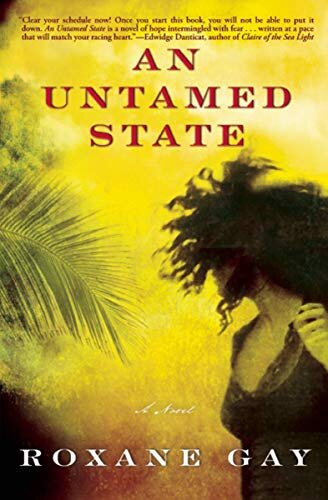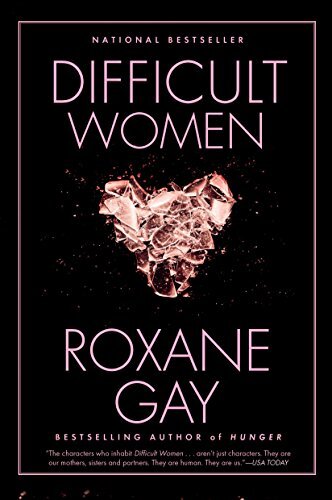This guest post is written by yoga teacher and writer Michelle Regan:
In the spring of 2014, I found myself sitting in an unremarkable hotel conference room waiting for a breakout session to begin. I was at the Muse and the Marketplace, an annual writer’s conference in Boston. Earlier, I’d browsed the book tables in the hotel lobby to find the teacher’s new novel. Little did I know that book, An Untamed State by Roxane Gay, would quickly solidify its place among my most beloved.
I’ve been thinking of Gay a lot lately. She’s been my touchstone in the middle of a global pandemic, nationwide unrest over racial injustice, and the celebration of pride month. I was thoroughly unprepared for her class that day. If you’ve ever heard her speak, you know she’s unfailingly eloquent, honest, and funny as hell. I’d never heard someone speak so unflinchingly about all the difficult and taboo bits of life. It’s this spirit that elevates her writing, which is timely, fierce, and painstakingly researched.
How does she do it? I think it’s a belief we both share: that specificity is the beating heart of any great story. Have you ever been asked to write something that appeals to “everyone?” I have. The problem is I don’t know “everyone’s” experience and neither do you. We only know our own.
The lovely thing about the theory of specificity is your experience and mine both matter. In fact, they’re the whole point. If you write your story well, with detail and passion, people will connect with it even if they’re living vastly different lives. The human experience is universal. The rest is gravy.
In 2018, Gay told the Guardian “As a black queer woman, specificity is incredibly important, because diverse experiences are rarely seen in literature.” And at the same time “What we tend to forget is that we all deal with a lot of the same things. We all deal with complicated relationships, with children, with the loss of children, with love and suffering. We have a lot in common, and I do think literature allows us to have some sort of shared empathy.”
In this spirit, I start all of my writing by asking myself why. Why this story? Why me? Why now? Gay, too, recommends finding your “why” as the first step in effective essay writing. That’s where your direction and your details lie. So let’s take a moment to dig into it.
Before you can understand your why, you need to understand your who. Close your eyes and imagine you’re sitting next to a bottomless basket. Now, ask yourself “Who am I?” One by one, shed all your labels: employee, parent, sibling, caregiver, creative, math whiz, white, Black, hapa, queer, straight, non-binary, you get the idea. Put them all in the basket. This is not who you are. When it’s all stripped away, what’s left? Who is the person underneath all those labels? That’s your who.
Now, why you? Why are you the right person to tell this story? You may find your answer at this stripped-down level and I encourage you to try. But our why’s are sometimes linked to identity. Our values are shaped by the lens through which we experience the world. So one-by-one, reclaim your labels and explore whether they’re a piece of your “why.” Writing out your thoughts may help you explore all the light and dark corners of these labels and what they mean to you. Somewhere in there, you’ll find the “why.”
In her essay The Legacy of Toni Morrison, Gay reflects on the formative effect Morrison’s writing had on her:
“Ms. Morrison taught me and an entire generation of black writers to recognize that we are rich places to write from. She showed us that we must matter first to ourselves if we hope to matter to anyone else. She demonstrated that there is no shame in writing that is both work and a necessary political act.”
If that’s not a “why” I’m not sure what is. Gay bolsters her personal experience with cultural context and sage words from Morrison herself, “Say more and write less,” advice I now treasure, too. It's a wonderful example of making the personal universal through specificity. By sharing her own story of feeling unworthy, she taps into the universal fear of not being enough.
Gay’s work is a comfort to me even when the work itself isn’t comforting at all. Like a favorite ice cream flavor, I reach for it in moments of joy, pain, and searching. Her words provide connection to something that’s both unquestionably different but undeniably feels like home. The beautiful thing is we can all be someone else’s mint chocolate chip if we embrace the fact that every one of us is a rich place to create from.


Michelle Regan is a writer and yoga teacher who's passionate about sharing all the ways in which yoga and creativity can be transformative forces in our lives. In her free time, she enjoys reading, hiking, and petting all the dogs.




